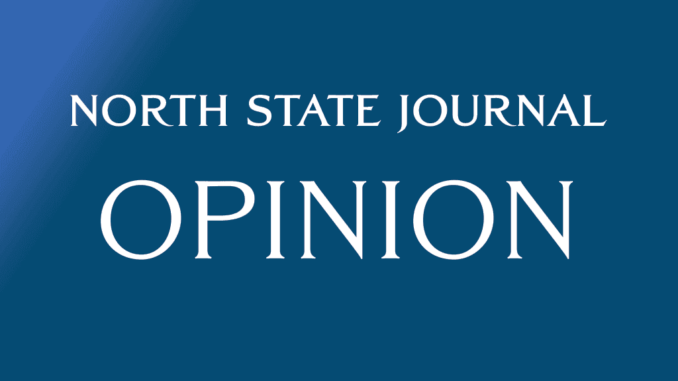
Among the many ways strong public schools benefit everyone in North Carolina, no one should overlook one of the most important: our 21st-century economy.
No matter what type of education makes sense for your family or friends, thriving public schools contribute to the well-being of our shared economy. Public schools have been a cornerstone of America and its status as an economic power since its founding almost 250 years ago — and now they’re more important than ever before.
We need public schools to keep expanding to improve our families’ quality of life. But the economy can’t grow without an educated, skilled workforce.
That’s not just my opinion as a leader in public education, it’s also the position of North Carolina’s business community itself.
The NC Chamber, for example, lists education and talent supply as the first of its three pillars of success for our state’s future.
“Today, nearly half of North Carolina’s employers say they’re struggling to find the talent they need to fill open positions,” the Chamber says. “By 2030, nearly 2 million jobs will require high-quality postsecondary degrees or credentials.”
However, fewer than half of eligible students are enrolled in North Carolina’s high-quality prekindergarten system when the goal should be at least 75%, the Chamber adds.
“As the beneficiaries of strong school systems, community colleges, universities and workforce training programs, businesses have a clear understanding of the strengths and weaknesses of education in North Carolina,” the Chamber concludes. “Incentivized to engage and encourage excellence, the business community must serve as a convening and thoughtful voice in an often-contentious arena.”
Similarly, the public-private Economic Development Partnership of North Carolina touts our state’s well-educated workforce as a key tool in recruiting new businesses.
As state Commerce Secretary Machelle Baker Sanders has put it: “Our investment in North Carolina’s greatest asset — its people — will ensure the state has a diverse, skilled, and healthy workforce ready to support immediate and future business needs.”
Yet, as a recent Commerce Department report noted, North Carolina’s elementary and secondary public school current expenditures lag well behind national averages. That does not create a favorable trajectory for our state’s long-term prosperity.
It’s important to acknowledge that not everyone needs a four-year college degree, even for some of our state’s most advanced industries. But the community colleges providing technical and vocational training need students who show up with strong high school educations — and most of them come from our local public schools.
Every community across our growing state needs a strong civic foundation and a healthy economy built on a well-educated workforce. That’s one of the main reasons why everyone benefits from a strong public school system.
North Carolina competes constantly with other states and nations for jobs and business investments. Healthy public schools have been vital to our state’s success so far, and they’ll be critical for its future. Put simply, public education does the public good. To learn more, go to NCSBA — Public Education Matters.
Jennifer Thompson is a physical therapist and department manager at Cherokee Indian Hospital, and president of the North Carolina School Boards Association.
